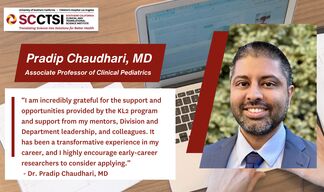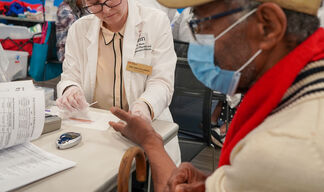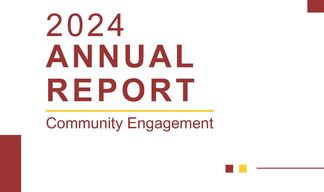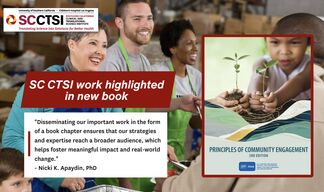Vaccinate Watts: Unveiling Community Resilience and Health Equity in the Face of COVID-19
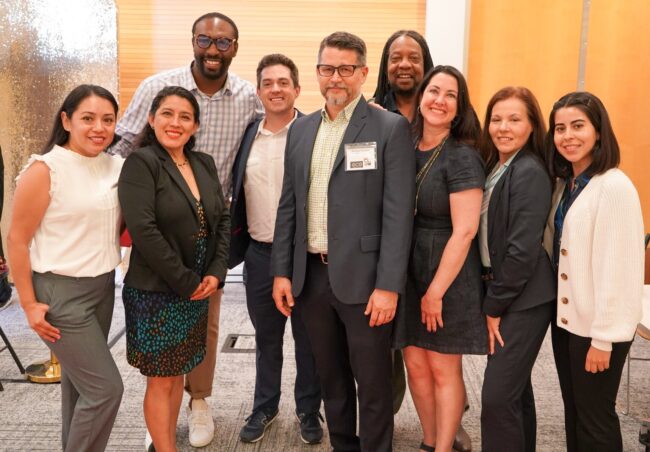
On June 20 in a recent film screening of "Vaccinate Watts," director Michael Greene, co-writer and producer Sean McBride, and Dr. Jerry Abraham, who played a pivotal role in advocating for equitable vaccine distribution in South Los Angeles, were all invited to speak about the film and their experiences on the frontlines of the COVID-19 pandemic. The screening took place at The California Endowment in Los Angeles, and was part of the 2023 Vaccine Forum organized by the Immunization Coalition of Los Angeles County (ICLAC).
"Vaccinate Watts" (2022) is a notable film that portrays the inspiring efforts of the VaccinateLA campaign, a partnership involving the Southern California Clinical and Translational Science Institute (SC CTSI), 14 academic schools within the University of Southern California (USC) including Keck School of Medicine of USC, local churches, healthcare workers, medical institutions, and community organizations in their mission to promote and provide COVID-19 vaccinations in South Los Angeles.
The film sheds light on the challenges faced by healthcare providers to address misinformation and educate community members on the importance of getting vaccinated. It also highlighted the struggle of those individuals who tragically lost loved ones to the disease, and those who were grappling with the long-term effects of COVID-19. Through its compelling narrative, "Vaccinate Watts" captures the essence of a community coming together to combat the pandemic and emphasizes the crucial role of collaboration and equity in healthcare delivery.
Greene and McBride embedded themselves in the South Los Angeles community to capture the work of healthcare providers at vaccine clinics, and to speak with community members directly impacted by COVID-19 to understand and capture their perspectives on the importance of vaccination.
Reflecting on their journey, Greene recalls the moment when they realized they were witnessing a historic event during one of the vaccine pop-up clinics:
"At one of the vaccine pop-up clinics, someone said to us, 'You guys are documenting history.' And it struck us that that's exactly what's happening, we were witnessing something that many people weren't aware of."
This realization inspired Greene and McBride to expand their project into a documentary film, driven by their desire to document history and raise awareness about the remarkable efforts taking place in South Los Angeles.
McBride expressed that "Vaccinate Watts" aimed not only to inspire vaccination efforts but also to foster appreciation for healthcare providers and instill resilience in the community.
"We utilized all of the CTSI's relationships to have access to people who could provide the right information, and that's how we ultimately met Dr. Abraham," explained McBride.
Dr. Abraham, physician and director of vaccines at Kedren Community Health Center, highlighted the importance of addressing equity and race in healthcare delivery. He passionately emphasized that marginalized communities cannot be left behind during future crises and called for transformative change, stating that it would be criminal to repeat such disparities.
"If this happens again, and we [underserved communities] get left behind again, there's simply no excuse. It's criminal at this point. It would shed light on how equity and race affect healthcare delivery in this country," remarked Dr. Abraham.
The COVID-19 pandemic has exposed the deep-rooted disparities in healthcare access and outcomes, particularly among marginalized communities. Black and Latino individuals have borne a disproportionate burden of the pandemic, experiencing alarmingly high rates of infection and death. Hindered by limited vaccine accessibility and pervasive misinformation, these communities have faced devastating consequences.
"Vaccinate Watts" serves as a poignant reminder of the challenges posed by disinformation and public skepticism surrounding vaccines. Moreover, it demonstrates the tremendous impact that collaboration between public health advocates and storytellers can have in effectively communicating the significance of public health initiatives to communities.
